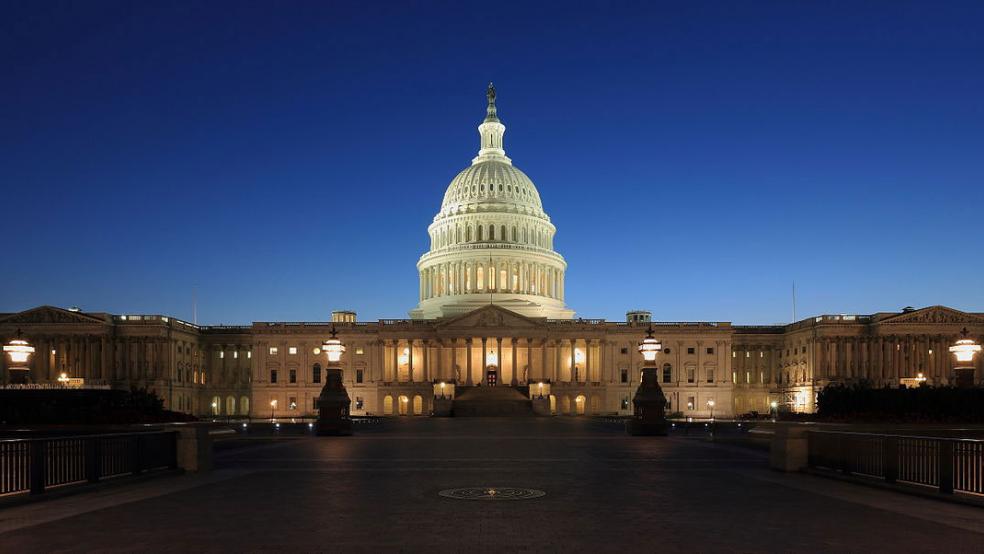The House is set to pass a $1.9 trillion Covid relief package late Friday, sending the legislation to the Senate for further consideration and almost certain revision. The bill includes a controversial provision that raises the minimum wage to $15 an hour over a period of years, but the Senate parliamentarian ruled Thursday that the wage hike cannot be included in the upper chamber's version of the legislation.
Democrats are trying to advance the bill through budget reconciliation, which would allow the Senate to avoid a Republican filibuster and pass the legislation with a simple majority of 51, with Vice President Kamala Harris providing the deciding vote. But as it stands Friday, the minimum wage provision will likely have to be removed from the Senate version of the bill, following Senate parliamentarian Elizabeth MacDonough’s ruling that the minimum wage cannot be altered through the bill under the rules governing the reconciliation process.
House Democrats are moving ahead with the bill despite its uncertain status in the Senate in an attempt to finish the legislation before March 14, when temporary unemployment assistance passed in December is set to expire.
House Speaker Nancy Pelosi (D-CA) on Thursday night pushed her case for the bill in its current state. “The ruling from the Senate parliamentarian is disappointing, because raising the minimum wage would give 27 million Americans a well-deserved raise and pull nearly one million Americans out of poverty in the middle of a once-in-a-century devastating pandemic and economic crisis,” Pelosi said in a statement. “House Democrats believe that the minimum wage hike is necessary. Therefore, this provision will remain in the American Rescue Plan on the Floor tomorrow. Democrats in the House are determined to pursue every possible path in the Fight For 15.”
Republicans are more or less united in their opposition to the bill, saying it is too large and unfocused. In addition to the minimum wage increase, the bill would provide $1,400 relief payments for millions of Americans; extend enhanced unemployment benefits of $400 per week through August; provide $350 billion in aid for state and local governments; expand child and earned income tax credits; fund vaccine distribution; and much more (see this Committee for a Responsible Federal Budget analysis for a complete rundown).
An alternative minimum wage plan: Although the White House says it still backs the goal of a $15 minimum wage, the administration reportedly has no plans to intervene in the Senate parliamentarian’s decision, effectively scuttling the option of having the vice president object to the ruling, a move that could potentially result in the provision staying in the bill. As an alternative, Senate Majority Leader Chuck Schumer (D-NY) is considering adding a provision that would impose tax penalties on large corporations that don’t pay their workers at least $15 an hour, an approach that would stand a better chance of winning approval from the parliamentarian, though such a ruling would not be guaranteed.
Senate Finance Chairman Ron Wyden (D-OR) outlined the tax penalty idea Friday. It would hit employers with an escalating tax, starting at 5%, if employee wages are too low. Wyden said the proposal would include “safeguards to prevent companies from trying to outsource labor to avoid paying living wages,” but he did not specify how many companies would fall under the rule. Wyden also said he wanted to provide tax credits to smaller companies that paid their employees higher wages, but he did not specify the pay level.
Republican Sen. Josh Hawley of Missouri floated a similar plan Friday, proposing that companies with revenues of $1 billion or more be required to pay their workers at least $15 an hour. Sen. Bernie Sanders (I-VT) also offered a version of the proposal.
Worries about complications: Some Democrats were wary about making last-minute changes on a complicated issue. House Ways and Means Committee Chair Richard Neal (D-MA) said Friday that he was concerned about anything that would slow the bill down. “Time is ticking, and we have to do everything in our power to keep unemployment benefits from lapsing and delivering the other urgent relief in this package,” Neal told Bloomberg.
Some experts also expressed concerns. “This is a really big, complicated, brand new proposal. It is *possible* that it works,” Jason Furman, who led the Council of Economic Advisers in the Obama administration, said in a tweet, referring to Wyden’s plan. “It is also *possible* that another tax version works. But I would be extremely nervous about trying out a brand new idea like this with virtually no vetting.”
Progressives push for fundamental changes: The struggle over the minimum wage provision pushed some Democrats to call for changing the rules in the Senate, including abolishing the filibuster in order to clear the way for legislation to pass with a simple majority vote. Progressive Rep. Pramila Jayapal (D-MI) called on Democrats not to give up on the wage increase just because of Senate rules. “We made a promise to raise the minimum wage,” she said. “We now have to deliver on that promise to 27 million Americans who are not going to be much convinced when we go back in two years and say, ‘Sorry the unelected parliamentarian told us we couldn’t raise the minimum wage.’”
What’s next: The Covid relief bill will almost certainly be revised significantly in the Senate, which means the House will need to vote on it again. No clear resolution of the minimum wage issue has emerged yet, and it could take some time for a new consensus to emerge on the final shape of President Biden’s first major legislative effort.




